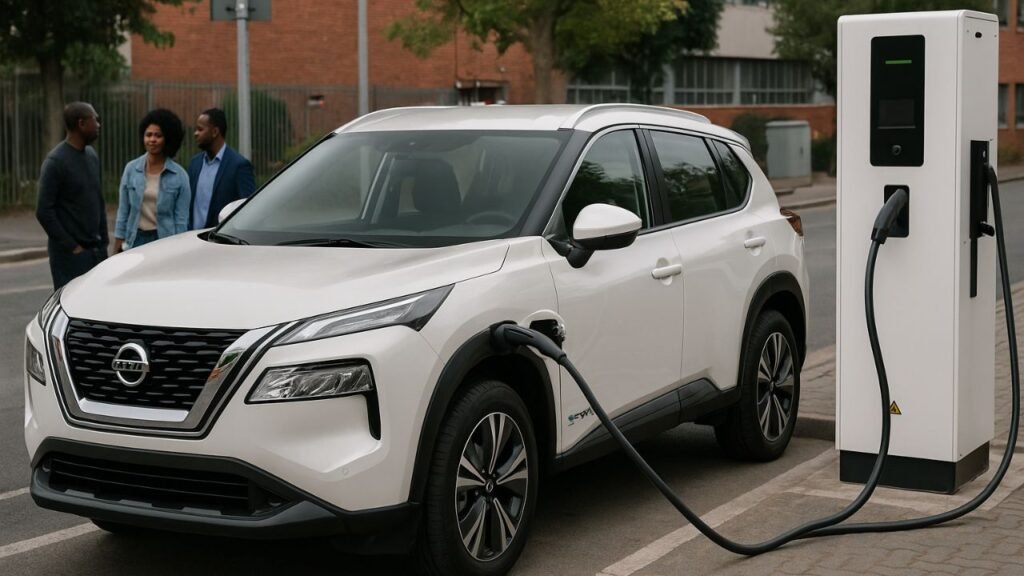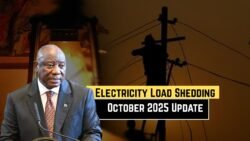Nissan Considers Launching – Nissan is exploring the possibility of introducing its innovative e-Power hybrid vehicles in South Africa, a move that could redefine the local automotive market amid growing discussions around electric vehicles (EVs) and infrastructure limitations. Unlike conventional hybrids, e-Power technology operates with a petrol engine that charges the battery, which in turn powers the electric motor, providing drivers with an EV-like experience without relying heavily on charging stations. This approach makes the technology particularly suitable for South Africa, where charging infrastructure for fully electric cars is still in its infancy and frequent power outages add to consumer hesitancy. With South Africa pushing towards sustainable mobility and global automakers racing to meet carbon reduction goals, Nissan’s consideration of e-Power could address the gap between consumer demand for greener vehicles and the challenges of a reliable EV ecosystem. According to reports, Nissan has already found success with e-Power models in markets like Japan and Europe, which strengthens its case for entry into South Africa.

Nissan’s e-Power Technology Explained
Nissan’s e-Power technology combines the efficiency of an electric drivetrain with the practicality of a petrol-powered generator. Unlike traditional hybrids where the petrol engine directly assists the wheels, in e-Power systems the engine works only to charge the battery, while propulsion is entirely electric. This creates a smoother driving experience and improved fuel economy, giving motorists the benefits of an EV without depending on a dense network of charging stations. According to Reuters, e-Power has been widely accepted in markets with limited EV infrastructure, which mirrors South Africa’s current situation. The technology also reduces emissions significantly compared to conventional petrol engines, making it a practical stepping stone for countries aiming to cut transport-related carbon footprints. By leveraging this model, Nissan hopes to build consumer trust in EV-style driving while allowing time for infrastructure to catch up.
South Africa’s EV Market Challenges
South Africa’s adoption of electric vehicles has been slow due to a combination of factors, including high import tariffs, limited charging stations, and ongoing electricity supply issues. Data from the Business Live highlights how government strategies for EV adoption have faced delays, leaving the country lagging behind global trends. Additionally, the price point of many imported EVs places them out of reach for middle-class buyers, further slowing growth. Load-shedding remains one of the biggest obstacles, as potential buyers fear being left stranded without reliable charging options. By contrast, Nissan’s e-Power hybrids could provide a solution, as they do not rely solely on charging infrastructure but still align with eco-friendly mobility goals. If priced competitively, these vehicles could appeal to a broad spectrum of South African drivers who are cautious but curious about EV alternatives.
Potential Market Impact of Nissan e-Power
The entry of Nissan’s e-Power vehicles into South Africa could shake up the automotive landscape by providing consumers with an accessible pathway into sustainable driving. According to an analysis by Cars.co.za, hybrid vehicles are gradually gaining traction in the country, with models like the Toyota Corolla Cross Hybrid showing strong demand. Nissan’s entry would further expand consumer choice, giving drivers an option that balances affordability, performance, and eco-consciousness. For fleet operators and businesses, e-Power vehicles could also reduce fuel costs while aligning with corporate sustainability policies. Moreover, Nissan could benefit from positioning itself as a leader in bridging the gap between conventional fuel-based vehicles and fully electric cars, carving a niche that competitors may not yet fully explore in South Africa.
The Road Ahead for Sustainable Mobility
South Africa’s path to widespread EV adoption will depend heavily on policy, infrastructure investment, and consumer education. Government incentives, such as reduced import duties and subsidies for EV purchases, could accelerate growth, but until then, hybrid technologies like Nissan’s e-Power may serve as the most realistic middle ground. According to World Economic Forum, Africa’s EV transition requires both public and private sector collaboration to overcome infrastructural and affordability barriers. For consumers, e-Power offers the reliability of a petrol engine with the lower emissions of an EV, making it an attractive proposition in a market that values practicality. If Nissan’s plan materializes, it could catalyze further competition, innovation, and awareness around sustainable mobility in South Africa. Ultimately, while challenges remain, technologies like e-Power may prove essential stepping stones toward a fully electric future in the region.







